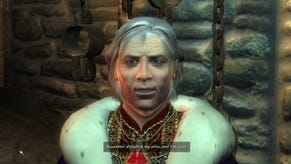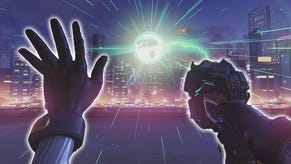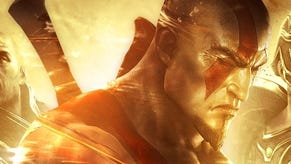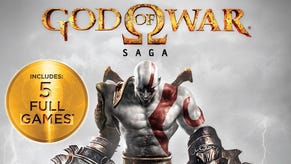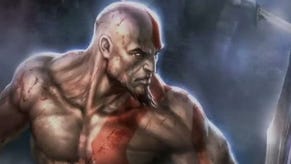God of War III
Bye, Zeus.
Powering up each weapon, via a method that remains largely unchanged from the original games, provides a welcome space for personal choice in an otherwise entirely scripted experience, but the real pleasure of the toys you're given is how accessible they are. God of War III makes it so easy to switch between them on the fly, sensible button configurations spread across the triggers and D-pad meaning you can mix things up and use all the equipment at your disposal with no fuss.
Even the most tentative player will soon be striking from a distance with arrows, stunning with a quick blast from Helios, before softening victims with the Chains of Exile, and then finishing them off with a single swipe from the Claws of Hades. Enemies provide additional scope for mayhem, each coming with their own gimmick, from sickle-handed wraiths you have to yank bodily out of the ground prior to a hammering, to centaurs just itching to be sliced down the middle.
And yes, the series remains bold in its use of QTEs, a mechanic that other games still implement awkwardly and often with a faint air of embarrassment. As with everything else in this game, it's a combination of focused use and shameless delight in brutality that sees Santa Monica Studios through. God of War III gets away with so many button prompts because they offer a change of pace from hammering away at light and heavy attacks, and because they allow some of the world's greatest game animators to really pile on the showmanship.
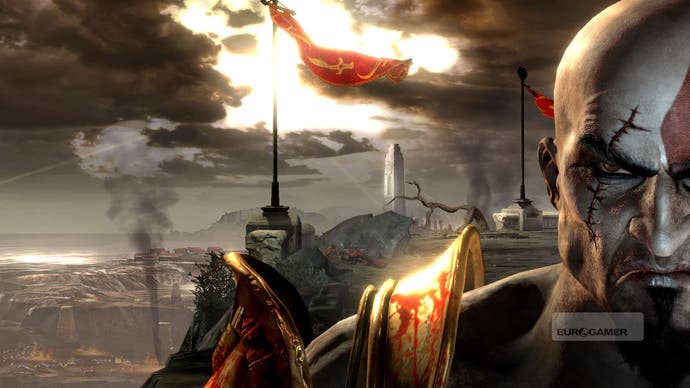
One very early example sees you pulling off a monster's claw, prising open its rib cage, and then goring it with its own talon. You're fighting on top of a giant stone woman at the time. Moments like that are probably worth the odd floating triangle symbol, especially when it means that all those regular boss fights you're going to slog through can be about crystal-clear cinematic unpleasantness rather than grinding attrition. Besides, any game that includes on-screen prompts telling you how to "agitate a harpy" can't be doing that much wrong.
Everything is enhanced by a camera that is spry and decisive: canny in its attempts to balance usability with spectacle, confident enough to zoom out when it wants to give you a sense of grandeur or ease in close to wriggle after you through impossibly tiny cracks in a mountain. Cinematic ambitions never get in the way of a willingness to frame the action as intelligibly as possible, while the game is happy to waste unexpected prettiness on anything at all, whether it's a humble trigger puzzle enriched by the face of a huge god frozen beneath your feet, or a block-pulling episode offered a touch of mysterious opulence by the towering form of a nearby tree that pulsates with a Titan's heartbeat.
The result of all this is a game that exists in an enviable goldilocks zone. God of War III is exactly the experience fans are expecting, most likely. It's polished but never impersonal, vast and explosive but never merely deafening. It's Scalextric adventuring, to be sure, but you'll rarely feel as confident to let a game lead you down the track, safe in the knowledge that it's only going to tug you towards fun.
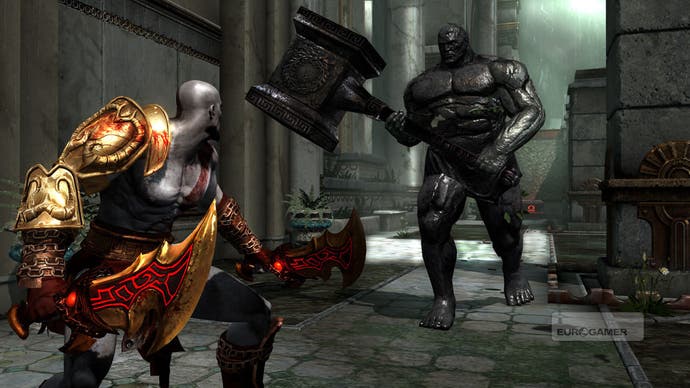
Everything it does is big - even switching between menus results in a sound that resembles someone taking a blow torch to a brontosaurus - and most of the things it does are surprisingly clever, too, like turning a Titan's body into an ingenious finishing move or threading complex stages together so tightly that you almost never have to backtrack.
It's repetition with refinement, in other words - which sounds a lot like mythology, come to think of it. All those ancient stories have probably survived because they kept things simple and delivered what the audience was expecting, focusing on the characters, the emotions, the signature moves and the really huge fights.
God of War III is much the same: a technical marvel, but with all the clever stuff turned towards the aim of very basic gratification. There are no branching paths, no complex decisions, and no multiplayer modes, but this particular game is all the better for it, since the results are rich and focused rather than drawn-out and a little ragged. Ultimately, if you want to revel in old-school pleasures decked out in the very brightest new armour, this is about as good as it gets.
Oh, and in case I didn't make this entirely clear, it includes the absolute best dog-kicking puzzle you'll ever see.

